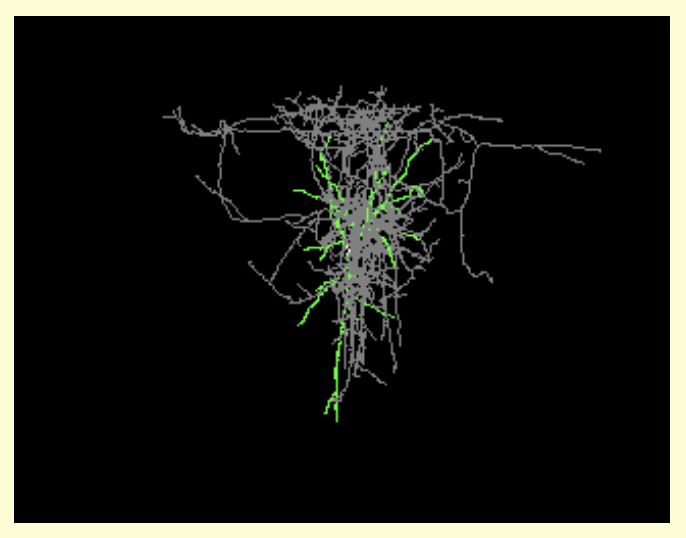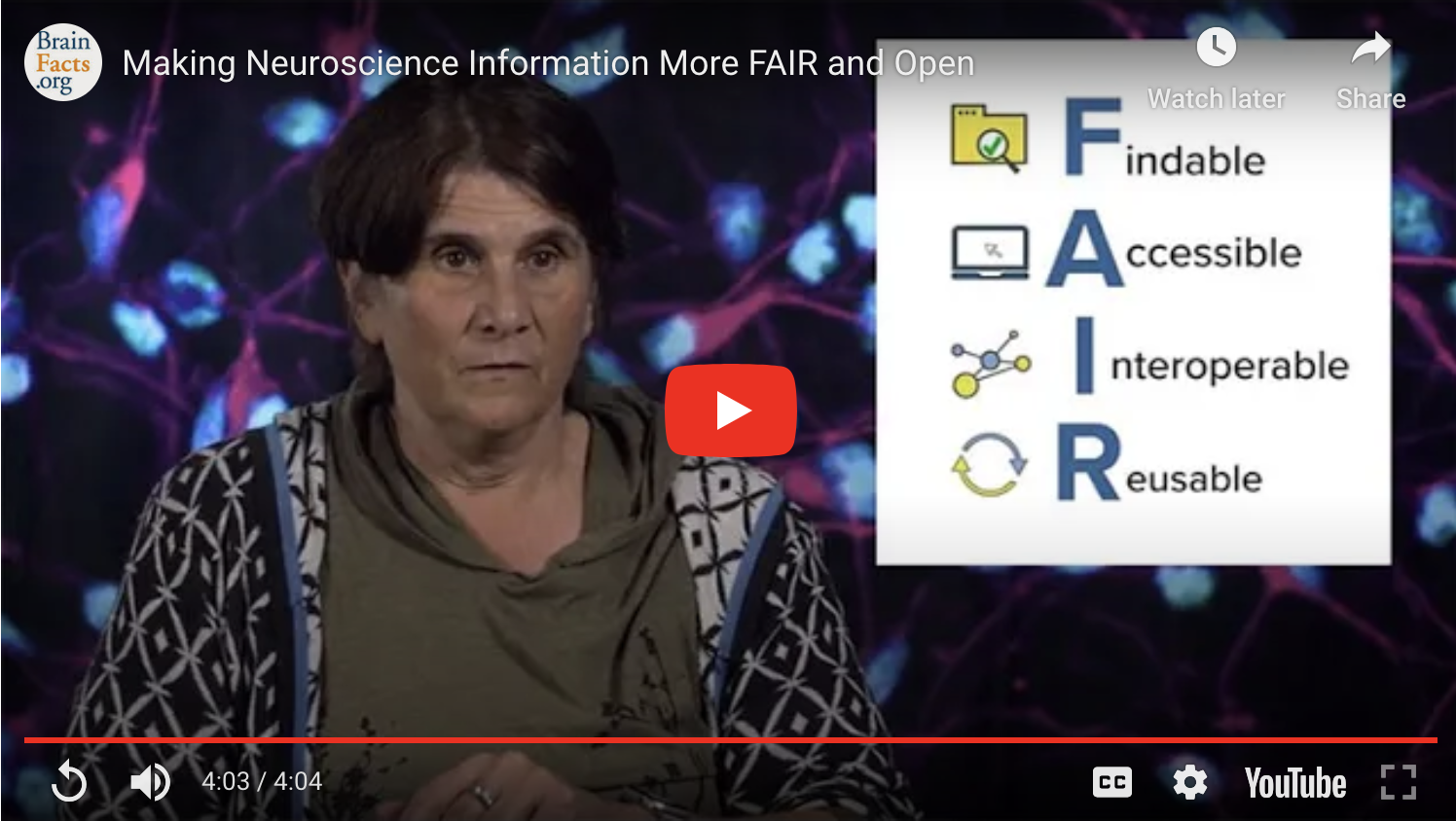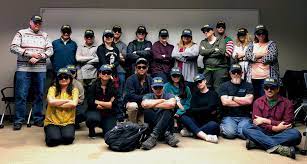Fecal microbiota transplantation improves anti-PD-1 inhibitor efficacy in unresectable or metastatic solid cancers refractory to anti-PD-1 inhibitor.
The gut microbiome significantly influences immune responses and the efficacy of immune checkpoint inhibitors. We conducted a clinical trial (NCT04264975) combining an anti-programmed death-1 (PD-1) inhibitor with fecal microbiota transplantation (FMT) from anti-PD-1 responder in 13 patients with anti-PD-1-refractory advanced solid cancers. FMT induced sustained microbiota changes and clinical benefits in 6 of 13 patients, with 1 partial response and 5 stable diseases, achieving an objective response rate of 7.7% and a disease control rate of 46.2%. The clinical response correlates with increased cytotoxic T cells and immune cytokines in blood and tumors. We isolated Prevotella merdae Immunoactis from a responder to FMT, which stimulates T cell activity and suppresses tumor growth in mice by enhancing cytotoxic T cell infiltration. Additionally, we found Lactobacillus salivarius and Bacteroides plebeius may inhibit anti-tumor immunity. Our findings suggest that FMT with beneficial microbiota can overcome resistance to anti-PD-1 inhibitors in advanced solid cancers, especially gastrointestinal cancers.
Pubmed ID: 39059396 RIS Download
Additional research tools detected in this publication
None foundAntibodies used in this publication
- CD8+ T Cell Isolation Kit, human (RRID:AB_3073903)
- CD4+ T Cell Isolation Kit, human (RRID:AB_2916089)
- NKG2A/C/E Monoclonal Antibody (20d5), FITC, eBioscience (RRID:AB_465305)
- FoxP3 (RRID:AB_2737940)
- CD11b (Mac-1) (RRID:AB_2744272)
- CD11c (RRID:AB_2737789)
- Mouse Anti-NK-1.1 Monoclonal Antibody, Allophycocyanin Conjugated, Clone PK136 (RRID:AB_398463)
- CD44 (RRID:AB_2738517)
- BV510 Rat Anti-Mouse CD8a Antibody (RRID:AB_2687548)
- APC anti-mouse TNF-alpha (RRID:AB_315429)
- BV421 Rat Anti-Mouse F4/80 (RRID:AB_2734779)
- PE anti-mouse IFN-gamma (RRID:AB_2890730)
- APC anti-mouse CD25 (RRID:AB_2280288)
- APC/Cyanine7 anti-mouse/human CD45R/B220 (RRID:AB_313007)
- PE anti-mouse CD279 (PD-1) (RRID:AB_313421)
- APC anti-mouse CD62L (RRID:AB_313099)
- PE/Cyanine7 anti-mouse CD4 (RRID:AB_312707)
- PerCP/Cyanine5.5 anti-mouse CD3 (RRID:AB_1595492)
- APC/Cyanine7 anti-mouse CD45 (RRID:AB_312981)
- Ultra-LEAF(TM) Purified anti-mouse CD16/32 (RRID:AB_2561482)
- Human TruStain FcX™ (Fc Receptor Blocking Solution) (RRID:AB_2818986)
- Ultra-LEAF(TM) Purified anti-mouse CD28 (RRID:AB_11147170)
- Ultra-LEAF(TM) Purified anti-mouse CD3epsilon (RRID:AB_11149115)
- Ultra-LEAF(TM) Purified anti-human CD3 (RRID:AB_11147370)
- OPAL POLYMER HRP MS + RB, 1X (RRID:AB_2890927)
- InVivoPlus anti-mouse PD-1 (CD279) (RRID:AB_10949053)
- InVivoPlus rat IgG2a isotype control (RRID:AB_1107769)
Associated grants
NonePublication data is provided by the National Library of Medicine ® and PubMed ®. Data is retrieved from PubMed ® on a weekly schedule. For terms and conditions see the National Library of Medicine Terms and Conditions.
This is a list of tools and resources that we have found mentioned in this publication.
CD8+ T Cell Isolation Kit, human (antibody)
RRID:AB_3073903
This cocktail targets CD4, CD15, CD16, CD19, CD34, CD36, CD56, CD123, TCRγ/δ, CD235a (Glycophorin A)
View all literature mentionsCD4+ T Cell Isolation Kit, human (antibody)
RRID:AB_2916089
This cocktail targets CD8, CD14, CD15, CD16, CD19, CD36, CD56, CD123, TCR γ/δ, CD235a (Glycophorin A).
View all literature mentionsNKG2A/C/E Monoclonal Antibody (20d5), FITC, eBioscience (antibody)
RRID:AB_465305
This monoclonal targets NKG2A/C/E
View all literature mentionsCD11b (Mac-1) (antibody)
RRID:AB_2744272
This monoclonal targets CD11b (Mac-1)
View all literature mentionsMouse Anti-NK-1.1 Monoclonal Antibody, Allophycocyanin Conjugated, Clone PK136 (antibody)
RRID:AB_398463
This monoclonal targets NK-1.1
View all literature mentionsBV510 Rat Anti-Mouse CD8a Antibody (antibody)
RRID:AB_2687548
This monoclonal targets Mouse CD8a
View all literature mentionsAPC anti-mouse TNF-alpha (antibody)
RRID:AB_315429
This monoclonal targets TNF-alpha
View all literature mentionsBV421 Rat Anti-Mouse F4/80 (antibody)
RRID:AB_2734779
This monoclonal targets F4/80
View all literature mentionsPE anti-mouse IFN-gamma (antibody)
RRID:AB_2890730
This monoclonal targets IFN-gamma
View all literature mentionsAPC anti-mouse CD25 (antibody)
RRID:AB_2280288
This monoclonal targets CD25
View all literature mentionsAPC/Cyanine7 anti-mouse/human CD45R/B220 (antibody)
RRID:AB_313007
This monoclonal targets CD45R
View all literature mentionsPE anti-mouse CD279 (PD-1) (antibody)
RRID:AB_313421
This monoclonal targets CD279
View all literature mentionsAPC anti-mouse CD62L (antibody)
RRID:AB_313099
This monoclonal targets CD62L
View all literature mentionsPE/Cyanine7 anti-mouse CD4 (antibody)
RRID:AB_312707
This monoclonal targets CD4
View all literature mentionsPerCP/Cyanine5.5 anti-mouse CD3 (antibody)
RRID:AB_1595492
This monoclonal targets CD3
View all literature mentionsAPC/Cyanine7 anti-mouse CD45 (antibody)
RRID:AB_312981
This monoclonal targets CD45
View all literature mentionsUltra-LEAF(TM) Purified anti-mouse CD16/32 (antibody)
RRID:AB_2561482
This monoclonal targets CD16/32
View all literature mentionsHuman TruStain FcX™ (Fc Receptor Blocking Solution) (antibody)
RRID:AB_2818986
This unknown targets FC receptors
View all literature mentionsUltra-LEAF(TM) Purified anti-mouse CD28 (antibody)
RRID:AB_11147170
This monoclonal targets CD28
View all literature mentionsUltra-LEAF(TM) Purified anti-mouse CD3epsilon (antibody)
RRID:AB_11149115
This monoclonal targets CD3epsilon
View all literature mentionsUltra-LEAF(TM) Purified anti-human CD3 (antibody)
RRID:AB_11147370
This monoclonal targets CD3
View all literature mentionsOPAL POLYMER HRP MS + RB, 1X (antibody)
RRID:AB_2890927
This unknown targets
View all literature mentionsInVivoPlus anti-mouse PD-1 (CD279) (antibody)
RRID:AB_10949053
This monoclonal targets PD-1 (CD279)
View all literature mentionsInVivoPlus rat IgG2a isotype control (antibody)
RRID:AB_1107769
This isotype control targets Trinitrophenol
View all literature mentionsC57BL/6-Tg(TcraTcrb)1100Mjb/J (organism)
RRID:IMSR_JAX:003831
Mus musculus with name C57BL/6-Tg(TcraTcrb)1100Mjb/J from IMSR.
View all literature mentionsBALB/cAnNCrlCrlj (organism)
RRID:MGI:6323059
laboratory mouse with name BALB/cAnNCrlCrlj from MGI.
View all literature mentionsC57BL/6NCrlCrlj (organism)
RRID:MGI:5882838
laboratory mouse with name C57BL/6NCrlCrlj from MGI.
View all literature mentions4T1 (cell line)
RRID:CVCL_0125
Cell line 4T1 is a Cancer cell line with a species of origin Mus musculus (Mouse)
View all literature mentionsMC-38 (cell line)
RRID:CVCL_B288
Cell line MC-38 is a Cancer cell line with a species of origin Mus musculus
View all literature mentions




